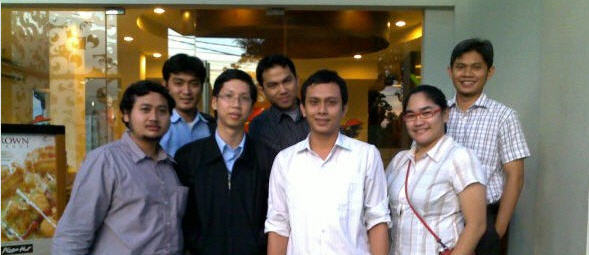
SAP, started in 1972 by five former IBM employees in Mannheim, Germany, states that it is the world's third-largest independent software vendor. The original name for SAP was German: Systeme, Anwendungen, Produkte. It means "Systems Applications and Products." The goal of the company was to provide large enterprise customers with the ability to interact with a corporate database in real-time. Today, the company states that its goal is "to offer the industry's most comprehensive portfolio of business performance and optimization solutions for companies of all sizes."
SAP's first software application was a financial accounting software suite that ran on a mainframe and was known for its stability. It eventually became known as the R/1 system. The "R" stands for real-time. During the 1980s, the company went international, and the second iteration of the R system (R/2) accommodated different languages and currencies. In the 1990s, the third iteration (R/3) moved from the mainframe to a client/server three-tier architecture composed of a database, software applications and a common graphical user interface (GUI). SAP used the name R/3 until the 5.0 release. At that time the name was changed from R/version to ERP Central Component (ECC). The most current version as of November 2009 is ECC 6.0.
When the Internet became pervasive, SAP responded by providing companies with the software they needed to sell goods and services online. Their product portfolio got a Web interface and was rebranded MySAP.com. MySAP was designed to be a corporate Web portal with role-based permissions for employees . The company promoted how SAP "solutions" could link commerce conducted over the Internet (e-commerce) with traditional bricks and mortar commerce to provide one seamless view of the business. Next came SAP NetWeaver, the company’s development and integration platform and middleware component, and Business Suite, a bundling of SAP’s enterprise resource planning (ERP), customer relationship management (CRM), supply chain management (SCM), product lifecycle management (PLM) and supplier relationship management (SRM) applications. In 2008, SAP purchased Business Objects, a French enterprise software company that specializes in business intelligence (BI), which marked a major change in the company’s BI strategy, which was previously focused around SAP's Business Explorer tools.
Current products include:
• SAP NetWeaver - service-oriented technology platform (SOA) for integrating information and business processes across diverse technologies and organizational structures. NetWeaver provides the foundation for other SAP software bundles.
• SAP Business Suite - software applications for large organizations and international corporations. The applications support core business operations such as supply chain managment, warehouse management, sales, customer relationship management and administrative functions. SAP offers software for 25 vertical industries, including banking, insurance, chemicals, healthcare, retail and consumer products.
• SAP Business All-in-One solutions, SAP Business ByDesign and SAP Business One - software products that address the needs of small and mid-market companies.
(searchsap.techtarget.com)


my link : http://iphoer-sap-fico-consultant.blogspot.com/
BalasHapuswah, sistem dalam SAP memang luar biasa. saya mahasiswa manajemen yang belum familiar dengan sistem SAP. Saya ingin tahu di indonesia sendiri, kriteria industri seperti apa yang menggunakan sistem ini? Saat ini pemerintah sedang menggalakkan program bagi UMKM. Keuntungan apa yang mungkin diperoleh bila usaha sekelas UMKM menggunakan sistem ini dalam sistem bisnisnya. Dan apakah mungkin bila pemerintah menggunakan sistem ini?
BalasHapusKomentar ini telah dihapus oleh pengarang.
BalasHapus@GreenKecambah:
BalasHapusDi Indonesia sudah banyak perusahaan perusahaan milik pemerintah dan swasta menggunakan system SAP. Baik itu perusahaan besar, menengah dan kecil yang tentu saja implementasinya disesuaikan dengan anggaran masing -masing perusahaan. Untuk menjawab kriteria industri apa yang tepat menggunakan sistem SAP, selayaknya bisa saya jawab : "SAP bisa diimplementasikan di industri apapun" karena SAP sendiri adalah sistem yang flexible bisa menyesuaikan dengan prosess bisnis yang ada dalam suatu perusahaan dan juga bisa di adopsi oleh jenis perusahaan apapun dengan memperhatikan modul-modul yang disediakan oleh SAP.
Untuk program UMKM bisa menggunakan SBO/SAP Business One dengan mengingat anggaran yang ada dan di SBO sendiri dapat mengcapture basic business proses yang tentunya dapat dilengkapi dengan program-program tambahan. Dengan menggunakan system SAP, penyajian data akan lebih transparan, accountable, dan bisa meminimalisir finance fraud and violence. Dengan melihat berita-berita actual saat ini di indonesia, saya rasa, tepat untuk menggalakan SAP go to Government company seperti halnya di PT.Pertamina, Bank BRI, dan PT. Telkom.
Thanks and Best Regard
Sendy Bayu Aji
SAP FI/CO and PS consultant
I am very thankful to this topic because it really gives up to date information.
BalasHapusSAP
Hi im sanjay sap fico consultant. I just browsing blogs there I found your blog is interesting.. thank for posting… keep on posting… sap-fico
BalasHapus